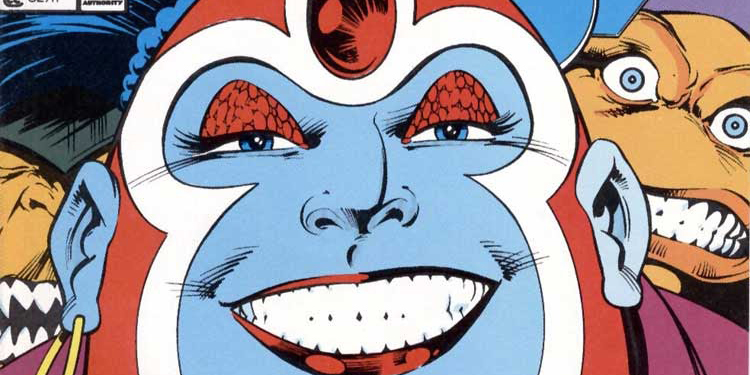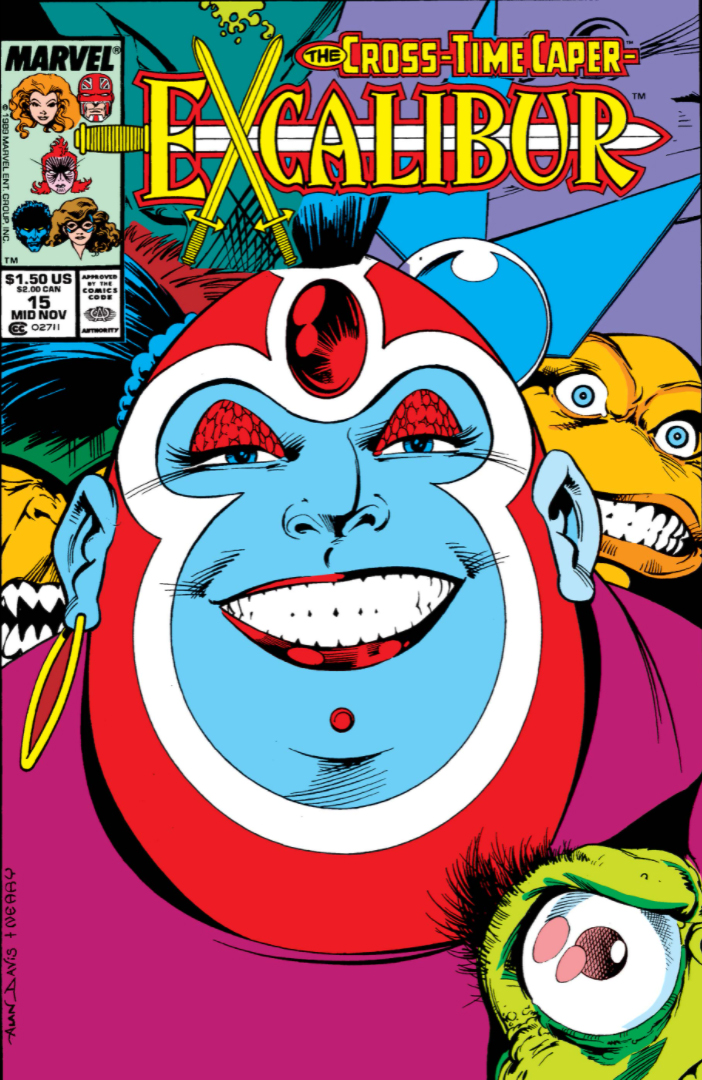Excalibur #15
“Impossible Missions!”
Writer: Chris Claremont
Pencils: Alan Davis
Inks: Paul Neary
Colours: Gylnis Oliver
Letters: Tom Orzechowski and Michael Heisler
Editing: Terry Kavanagh
Original publication date: November 1989
In this episode, Dazzler stan and all-around X-Men aficionado Dr. Nicholas Miller joins Anna, Mav, and Andrew to talk serious political allegories and equally serious gender play in Excalibur #15, “Technet: Impossible Missions!” We work through conflicted feelings about an affecting but messy story invoking imperialism & apartheid before fully embracing the rainbow of possibilities ignited by Brian’s most important moment of character growth to date: a two-panel sequence in which he admits he enjoyed dancing with Kurt in very fabulous drag. Plus: Gatecrasher-as-protagonist and The Importance of Vampire Kitty.
This episode has an enhanced video version! Watch here:
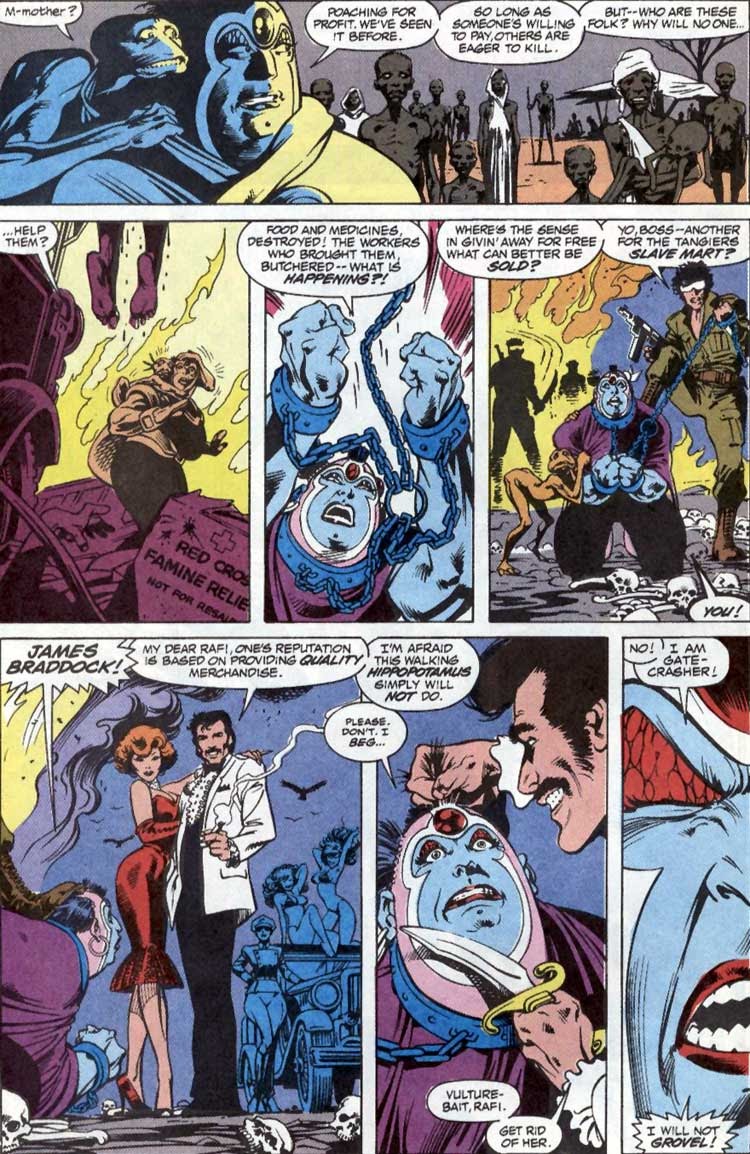
On the effectiveness of the apartheid allegory:
“If we’re going to consider this story in relation to what was actually going on with Mark Thatcher or apartheid, then we need to consider it an allegory, not a solution. This is Animal Farm. This is telling the story as best they could through another lens and not suggesting ‘so here’s how you make racism better.’” -Mav
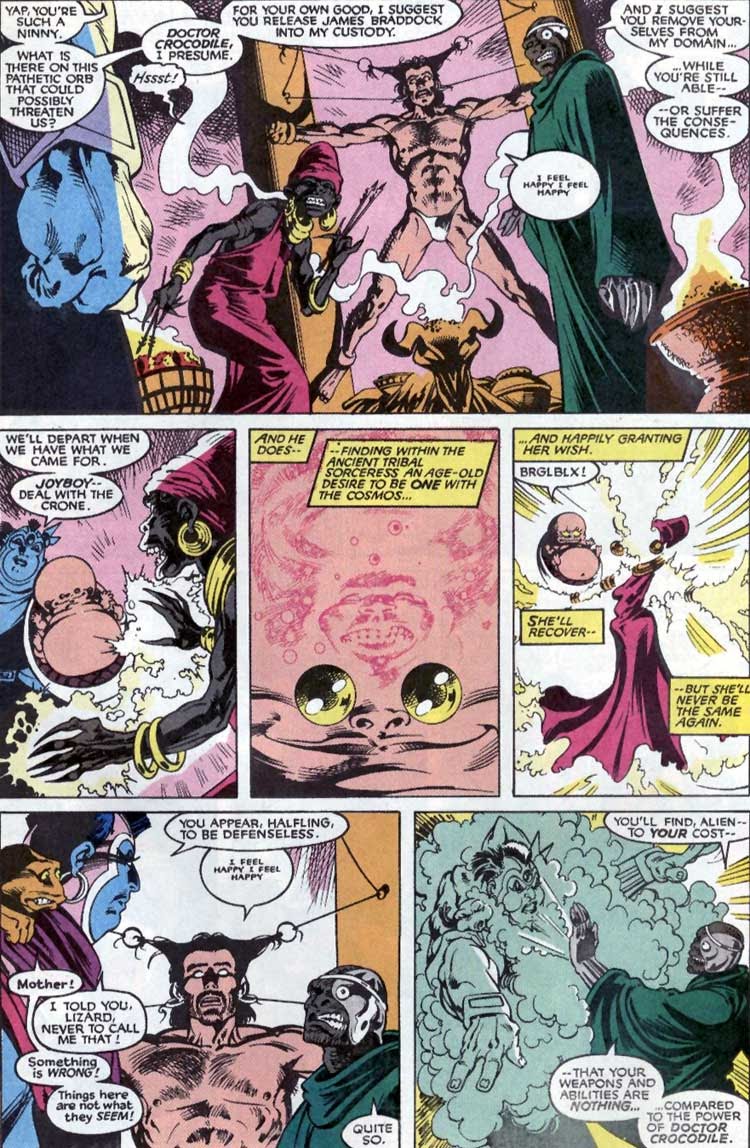
On the problematic-ness of the apartheid allegory:
“One of the things I immediately jumped to is we have these images of famished, weak, impoverished African peoples, and then you have this leader figure who has to be cybernetically enhanced. They’ve had to be stitched together through presumably Western technology… There’s a colonialist narrative of improvement that seems tied to Doc Croc in ways that I find really fraught and uncomfortable.” -Nick
“There’s a theory by Jan Pieterse called ‘techno-cannibalism,’ where you introduce Afrofuturist elements, but you still have the characters conforming broadly to stereotypes despite the technological enhancement. So, you’re reinforcing the idea that the ‘primitive’ is a character’s ‘natural’ state. Doc Croc has these cybernetics, but he doesn’t do anything with them. He’s still basically a wizard.” -Andrew
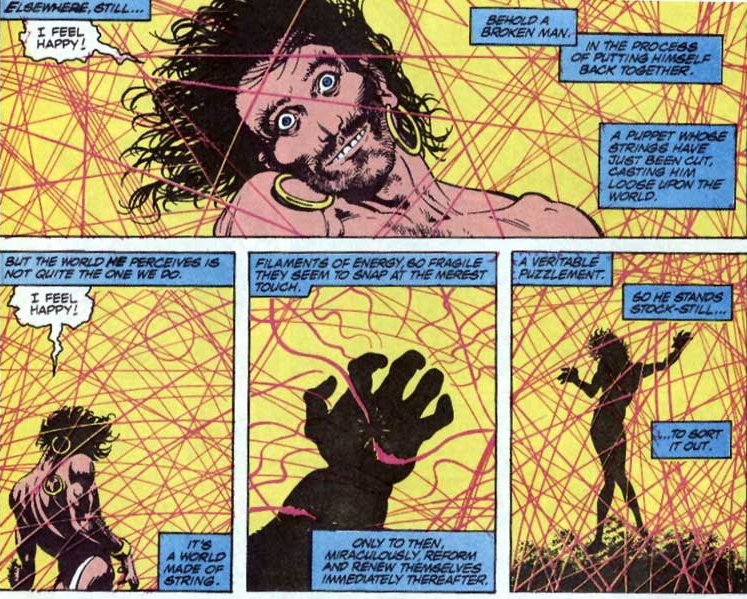
On the particular menace of Jamie Braddock:
“The best monsters are symbolic of concepts that can’t be easily personified. Jamie Braddock is a perfect embodiment of the kind of imperialist privilege that we might talk about when we talk about Mark Thatcher. You have someone who is universally powerful and has no sense of consequences.” -Andrew
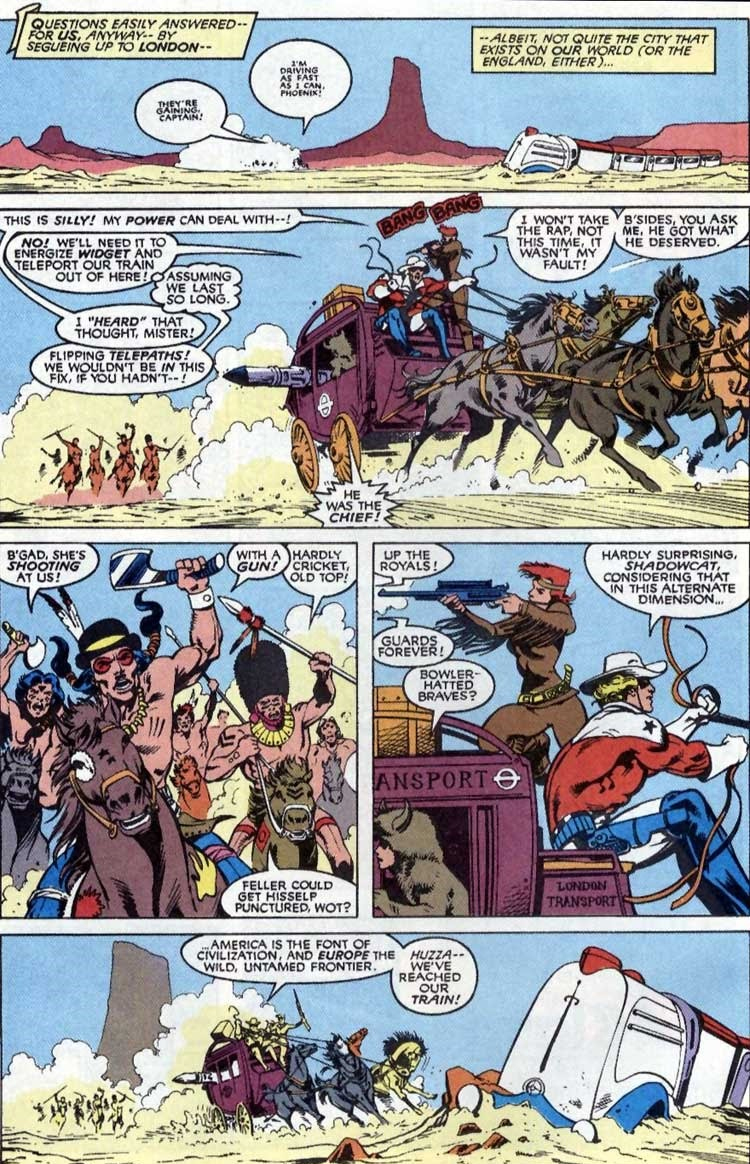
On lackluster depictions of Indigeneity:
“Even in trying to flip the civilization/savagery script here – which I think is meant as some kind of critique of colonialism – it actually erases Indigenous peoples in the Americas. What we have here is basically a lot of white folks ‘playing Indian.’” -Nick
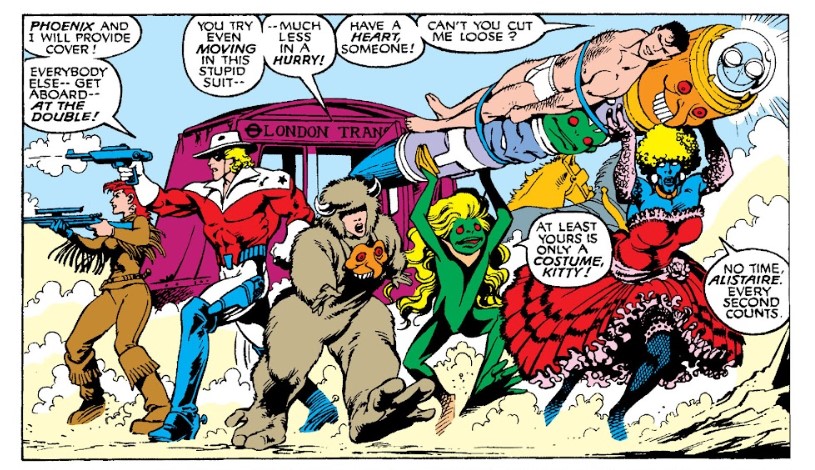
On the politics of gender performance:
“Throughout the series, we’ve seen Kurt and Brian performing very different versions of masculinity. Kurt is the swashbuckling, gentlemanly, sexy bathtub guy… Then we’ve got Brian who is this hyper-masculine football player-esque figure, who is actually deeply uncomfortable with his own body as a spectacle. What we learn here is that Kurt’s swashbuckling version of masculinity is much more comfortable with homosocial or homoerotic tones, where Brian’s masculinity is deeply rooted in a sense of shame.” -Nick
“While Kurt’s drag performance and the flirtatious exchange between Kurt and Brian are clearly meant to be funny… Brian also seems sincere. He’s the one who brings up Kurt being hot. I think that’s a huge progressive moment for him.” -Mav
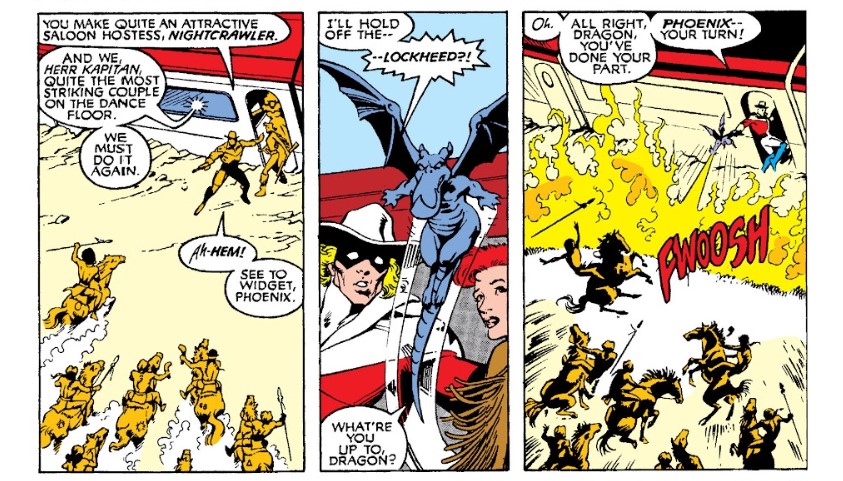
On queering Brian/Meggan/Kurt:
“Maybe this love triangle with Kurt, Meggan, and Brian isn’t always about setting up Meggan and Brian. Maybe it’s actually about the fact that Kurt and Brian want to rail each other at some point.” -Nick
“Meggan performs versions of Kurt and Brian in ways that attract them to themselves – and maybe, this scene suggests, each other.” -Anna
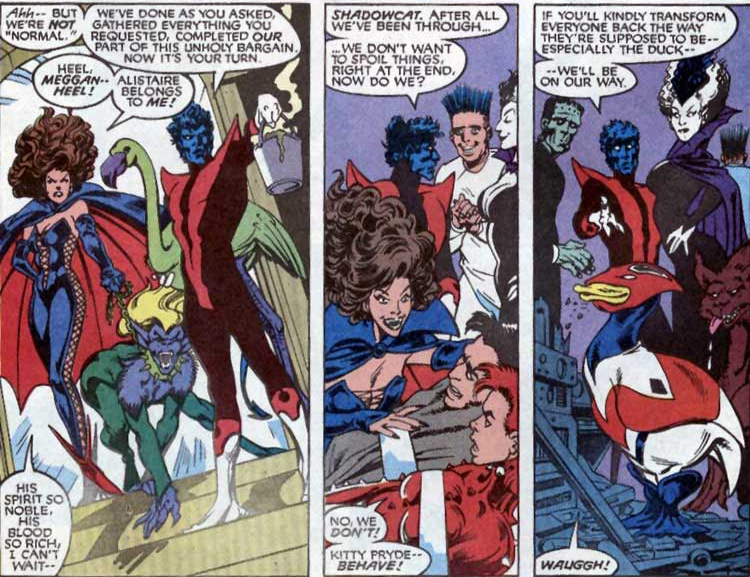
On The Importance of Vampire Kitty:
“Vampirism is a way that you release your inhibitions, and set your sexuality free. That’s what vampirism does. And if that’s the case, Kitty is owning her sexuality. As a vampire, she’s straight-up saying she wants Alistaire.” -Mav

Want more Nick Miller?
You can find him at his website, and on Twitter (@uncannydazzler).
We definitely encourage everyone who’s anyone to check out this piece on his blog: “The Case for Teaching Superhero Comics through Dazzler.”
Because Nick Miller + Dazzler is always an awe inspiring combo, we’d also encourage you to check out his essay “Disco, Derby, and Drag The Queer Politics of Marvel’s Dazzler” in The Oxford Handbook of Comic Books Studies.
Nick’s also a regular contributor to The Middle Spaces, where he’s written another fab piece about Dazzler, titled “‘Is There Anything Left to be Shattered?’: Reading Dazzler in the #MeToo Moment.” He’s also written about race and country music, queer themes in She-Ra, and a great many more fascinating and important things! Click here for a full list.
Books and essays referenced on the pod include:
White on Black: Images of Africa and Blacks in Western Popular Culture, by Jan Nederveen Pieterse
Epistemology of the Closet, by Eve Kosofsky Sedgwick
and
“Humanity Not Included: DC’s Cyborg and the Mechanization of the Black Body,” by Robert Jones Jr.
And as usual:
You can find Anna on Twitter (@peppard_anna) and on her podcast with Andrew and Michael Hancock, Three Panel Contrast (@3PanelContrast).
You can find Andrew on Twitter (@ClaremontRun).
You can find Mav on Twitter (@chrismaverick) and on his podcast, VoxPopcast (@VoxPopcast).
Enjoy!
-GGW Team

